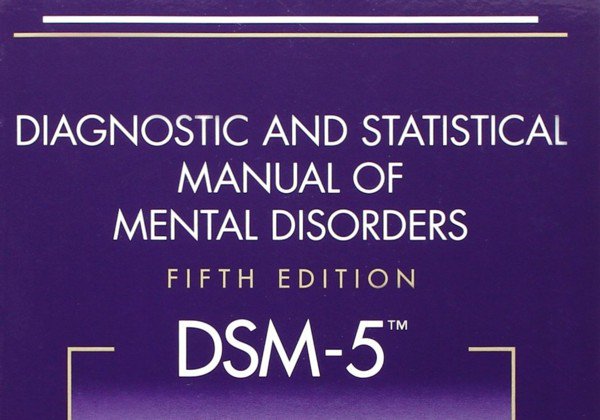Shortcomings of Mental Health Diagnostics
Log in to discuss and edit this issue
-
About
Mental health infrastructure is lacking in many regards, one of which is diagnostics—the use of tools and research to name and categorize different ways that people's brains can differ. Different diagnoses and diagnostic tools have been invented over time to ascertain patterns in the ways people think and behave. Not all patterns get their own label. The ones that do are mainly the ones that diverge from social norms. It is when a number of people are faced with, or present to others, a common difficulty, that doctors seek to identify the pathology of that pattern, often treating such suffering as personal unwellness rather than a "normal" response to the suffering of the world.
Although people who have mental health issues do often wish for meaningful support for their neurodivergence, they may not be able to find what they need in the existing system. There are many reasons for this.
Barriers
People don't always have an easy time getting into the care of a professional who has the requisite knowledge to successfully help. They may be prevented or discouraged from getting psychological/psychiatric help. They may be too intimidated by medical vocabulary to research what ails them. They may not know the difference between a therapist and a psychiatrist. Very frequently, people land themselves in the office of somebody whose qualifications aren't relevant or are mired in conformity to outdated social norms, which leads to disillusionment with mental healthcare.
Imprecision and Bias
The evolution of social norms around widely-supported practical ethics feels slow. Even slower is adoption by the whole medical community, because mental healthcare workers are not automatically informed of every update to the entire corpus of neuropsychological research. Education for psychiatry or therapy does involve some continuing education, but stochastically it happens at an irregular pace for different kinds of mental illness and neurodivergence.
Many subjective factors and social dynamics are at play in the invention of diagnoses and diagnostic criteria. Because diagnostics for mental health focus on what licensed professionals can objectively record, there is always a level of interpretation in standard diagnostic practice. Official criteria for what constitutes a given mental illness or neurotype is formed by established professional associations, which, as human institutions, cannot escape internal politics and ideological skew. The DSM-V and ICD-10 are the only two manuals that are well known, and perhaps no better alternative exists yet. This leaves the American Psychiatric Association (maintainers of the DSM) at the helm of decisions about millions of people's access to structured support for mental illness and appropriate accommodations. This group's point of view is not beholden in any procedural way to self-advocates in the mentally ill + neurodivergent community, so they have no real accountability for what they write in the DSM.
Tone
One of the big-picture norms that has not yet been adopted by the mainstream medical community is the notion that people who receive mental health diagnoses like "Autism Spectrum Disorder" may suffer less from the neurological pattern itself than from discrimination, social rejection, and inaccessibility.
Outliers
The lengthy process of identifying mental health conditions is heavily dependent on enough people being observed to share characteristics that aren't "explained" by other diagnoses. If what you have looks similar enough, from an outside perspective (which fundamentally cannot substitute for internal experience), to a condition that already has been described, your unique characteristics may never make it into the medical books. Diagnoses are based on observable behavioral patterns and described symptoms across a population, rather than exhaustive neuroimaging or genetic analysis. Such laboratory work is performed after a neurotype has been identified. Therefore, those that differ in even biologically significant ways from people with a defined condition that presents similarly may receive help for the better known condition, and that help may not work, or it may even backfire.
Version 2 of 2 - This issue was first identified by lavra on 1/3/2023
- Editors: lavra.
-
Issues that contribute to Shortcomings of Mental Health Diagnostics
The Magnova community says the following issues give rise to Shortcomings of Mental Health Diagnostics. Addressing this issue could be accomplished by dealing with the following sub-issues. (Registered users can upvote/downvote these connections.)
No links here yet! Log in to help break this issue down. -
Projects addressing Shortcomings of Mental Health Diagnostics
No projects here yet. Log in to create a new project. -
Local instances of Shortcomings of Mental Health Diagnostics
Is Shortcomings of Mental Health Diagnostics affecting your community? Issue pages, like the one you're on now, are ideal for talking about general problems. Each Issue can be deployed to a Location to create a "Local Issue" page, where users can measure an Issue's impact on that Location, and discuss things that are particular to the community.
- Existing Local Issue pages are shown below.
- You can create a new Local Issue page based on an existing Location using our map UI. Just click the "Map Shortcomings of Mental Health Diagnostics" button.
None identified yet! Registered users can identify new Local Issues.
QR Code
This QR code links to this page. Print stickers, add it to fliers, or chalk it onto your driveway.
